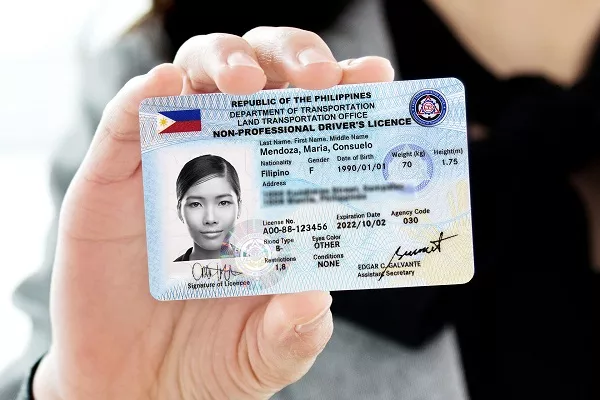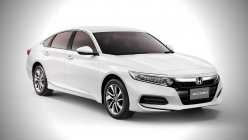A driver's license is more than just a laminated ID card that proclaims a motorist’s identity and capability; it also symbolizes freedom through personal mobility. Both Filipino citizens and foreign nationals can avail of the privileges of having a driver's license; if they wish to operate a motor vehicle anywhere in the country, provided that they follow the process to get one.
Moreover, they also need to adhere to the limitations or restrictions as stated in the license; otherwise, they might end up paying fines for various violations, and even have their license revoked.
I. Driver's license basics: the tiers
There are three tiers to having a driver's license in the Philippines. Drivers start out by having a student's license, also referred to as a student permit. This allows them to drive a motor vehicle, although they must be accompanied by someone who possesses either a non-professional or professional driver’s license.
After one month, a student license holder can apply for a non-professional license, which entitles him or her to operate a motor vehicle independently. A driver must be a non-professional license holder for at least six months in order to be eligible for a professional license, which is required if one drives a vehicle as an occupation.
If the drivers want to change anything on their driver's license, they will need to submit a request, either it be a name change or an LTO change address request.
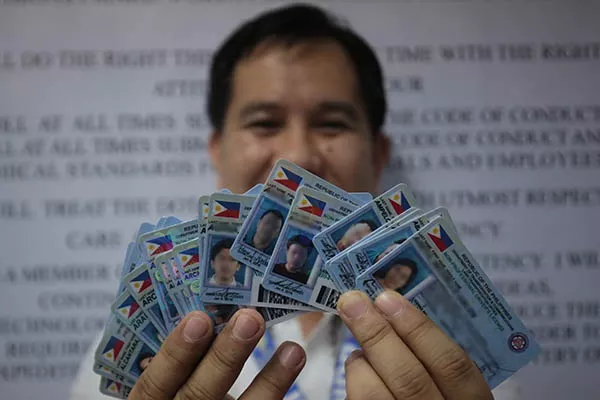
Before operating a car, you must first have your driver's license!
II. Limitations and restrictions of each category
For you to understand what your license entails, we've gathered relevant information for each type; this will inform you of what is allowed or not for each license category. You will not to ask some questions like: "Can i drive with student permit only?" or "Can a student driver drive with non pro license?".
Comprehending the driver license restrictions will save you from getting into trouble with traffic enforcers and having to pay the resulting penalties. To start off, let's discuss what you need to know upon getting your student's permit.
1. Student permit
- Once you have your student permit, you should be able to drive a privately-owned vehicle.
- You are allowed to drive only when accompanied by someone who possesses either a non-professional or a professional license. This applies to whatever destination you intend to go using a motorized vehicle.
- You and any passenger you are traveling with are required to use the necessary safety gear. Some examples of this are seatbelts (for four-wheeled vehicles) helmets, knee pads, elbow pads, and spine protectors (for motorcycles).
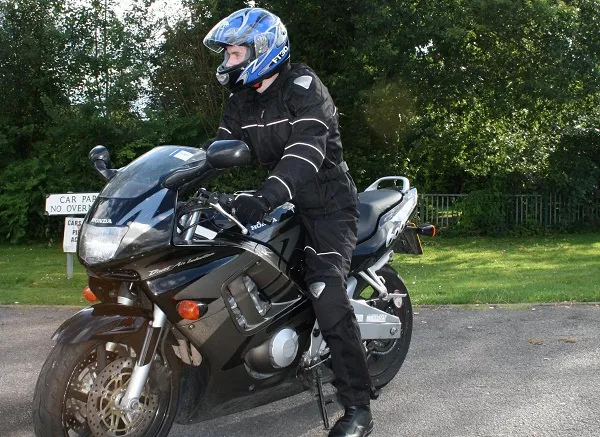
You should wear the necessary safety gear: helmets, knee pads, elbow pads while driving
- Slippers, flip-flops or thongs are not considered safe, and their use is discouraged regardless of the motor vehicle you intend to drive.
- The student license is valid for a year from the date issued. However, you don’t have to wait for a full year to pass if you wish to take the exams for moving up to the non-professional license.
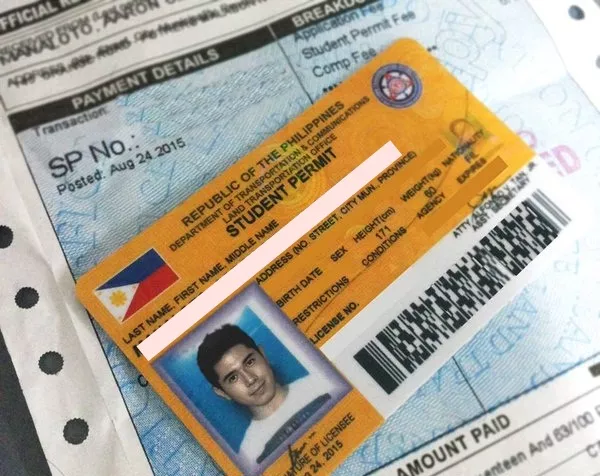
Once you have your student permit, you should be able to drive a privately-owned vehicle
>>> Remeber 3 things to keep in mind when applying for a student driver’s license in the Philippines
2. Non-professional driver's license
Conditions
- Student's license or even just the receipt as proof of your possession.
- You need to file an affidavit of loss with the Land Transportation Office; this should be accomplished by you, and duly notarized by a lawyer.
- Good eyesight, as evaluated by the ophthalmologist, in order to pass. Applicants with less than 20/20 vision will still have a chance of being granted a non-professional license, under the condition that the necessary corrective lenses be used.
- The driving license exam consists of two parts: written and practical. The written exam involves a series of multiple choice questions, while the practical exam requires you to execute basic driving maneuvers in the presence of an evaluator, who will assess your performance behind the wheel. Passing both exams entitles you to receive your non-professional driver's license. However, if you fail the LTO Driving test, you will need to re-take both at a later date.
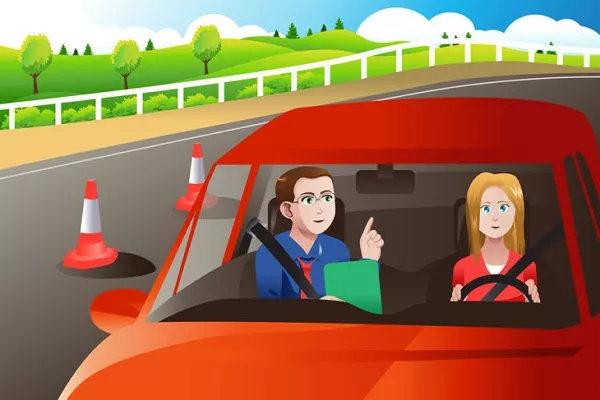
Both driving licenses require you to pass the practical driving test
>>> Related: Complete guide to non-pro driver's license requirements
Limitations
Drivers with a non-professional license are entitled to operate the following:
- Motorcycles/motorized tricycles (Restriction code 1)
- Vehicles that weigh up to 4500kgs (Restriction code 2)
- Vehicles equipped with an automatic clutch and weigh up to 4500kgs (Restriction code 4)
Drivers with a non-professional license are entitled to drive vehicles that can weigh up to 4500kg (cars, SUVs, vans)
3. Professional Driver's License
Conditions
However, the restriction codes assigned to you will depend on your capability to drive a particular vehicle; for instance, driving a 16-wheeler trailer truck or a bus is different from driving a sedan taxi unit.
You will be allowed to indicate the restrictions that you intend to apply for. Depending on what these are, you will be given a practical test with each vehicle that corresponds to the number. Usually, a vehicle will be provided for the test drives at the LTO branch you are applying at; if not, you will be responsible for providing one.
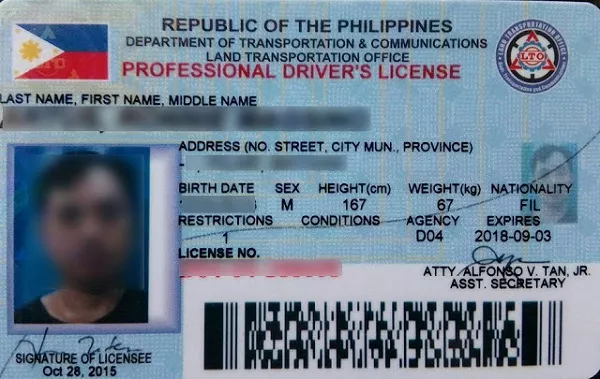
Professional Driver's License
>>> Related: Here’s your guide to Professional Driver’s License requirements in 2021
Limitations
A professional driver's license grants the bearer permission to drive a more comprehensive list of motor vehicles:
- Motorcycle/motorized tricycles (Restriction code 1)
- Articulated vehicles weighing 4501kgs and above (Restriction code 8)
- Vehicles up to 4500kgs gross vehicle weight (Restriction code 2)
- Vehicle more than 4500kgs gross vehicle weight (Restriction code 3)
- Vehicles with an automatic clutch up to 4500kgs (Restriction code 4)
- Vehicles with an automatic clutch above 4500kgs (Restriction code 5)
- Articulated vehicles weighing up to 1600kgs (Restriction code 6)
- Articulated vehicles weighing from 1601kgs up to 4500kgs (Restriction code 7)
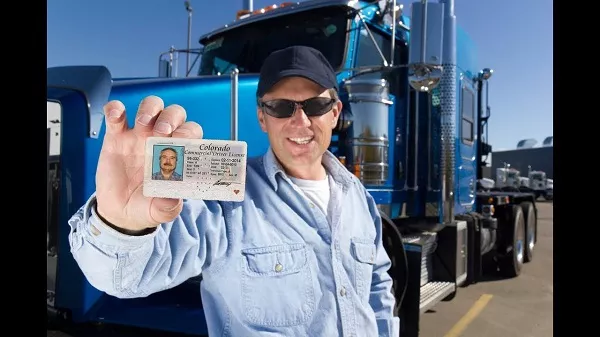
You need a professional license in order to legally drive a massive delivery truck
4. Other added requirements for disabled drivers
Depending on the circumstance, you may be required to:
- Wear eyeglasses or other corrective lenses
- Drive with special equipment for upper limbs
- Drive with special equipment for lower limbs
- Drive only during daylight hours
- Be accompanied by a person with normal hearing
Recent posts
- 6 tips to get your driver license renewal done in PH with least hassle Nov 08, 2022
- Vital Things Motorists Should Know About Driver License Suspension in the Philippines Aug 26, 2021
- Driver's License in the Philippines: All You Need to Know Nov 08, 2022
- What Philippines Students need to do to get LTO Student Driver’s License Sep 21, 2022
